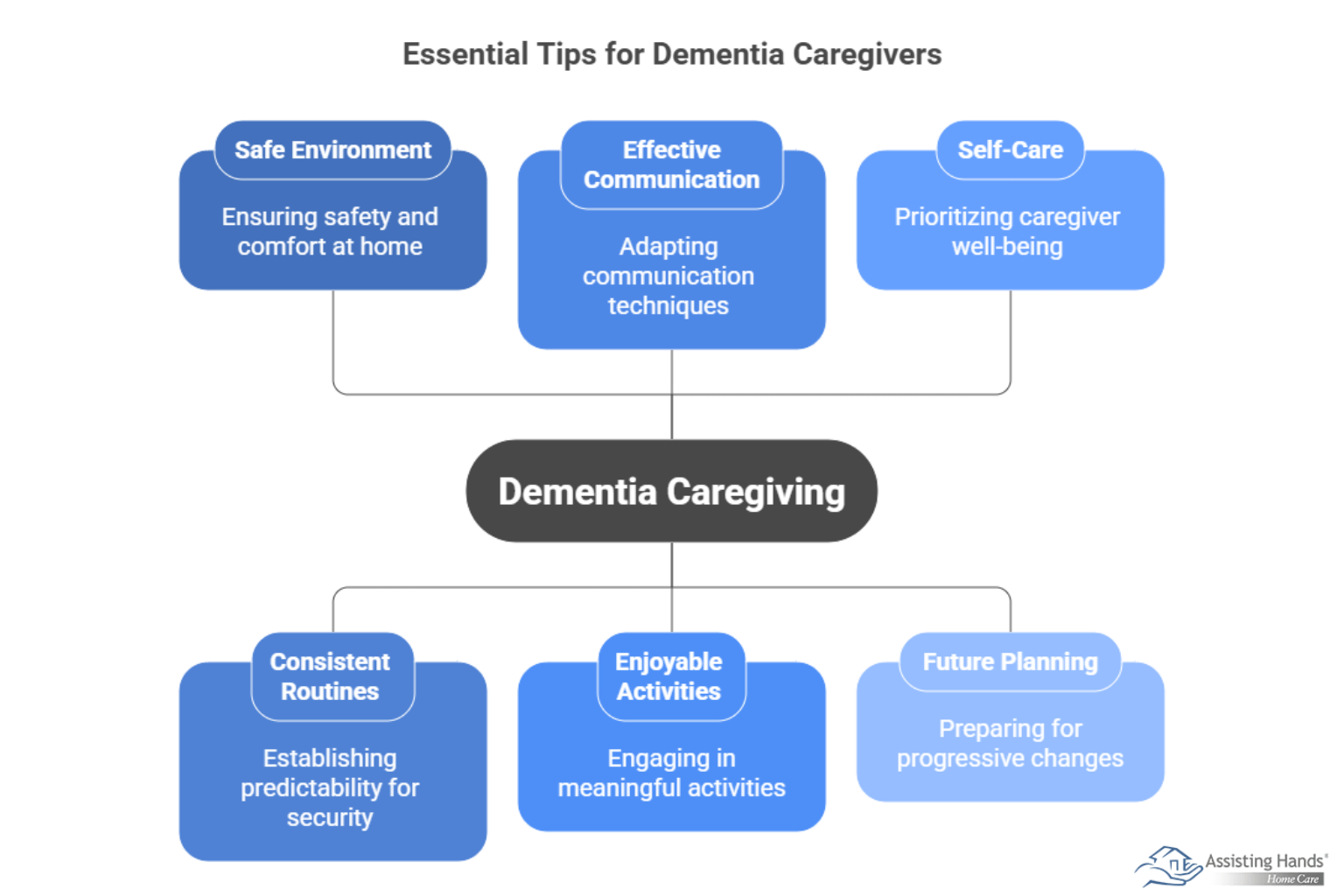
Table of Content
Caring for an aging family member with dementia brings unique challenges that can feel overwhelming at first. Understanding practical strategies and approaches can make this journey more manageable for both you and your loved one. These essential tips will help you provide better care while maintaining your own wellbeing.
1.Create a Safe and Familiar Environment
Safety becomes a top priority when caring for someone with dementia. Simple modifications can prevent accidents and reduce confusion.
- Remove trip hazards like loose rugs and electrical cords.
- Install grab bars in bathrooms and adequate lighting throughout the home.
- Secure potentially dangerous items such as knives, medications, and cleaning supplies.
- Keep familiar objects and photos visible to provide comfort and orientation.
- Use locks or alarms on doors if wandering becomes an issue.
Maintaining familiar surroundings can reduce anxiety and confusion. Avoid major changes to furniture arrangement or décor whenever possible.

2.Establish Consistent Daily Routines
People with dementia thrive on predictability. Structured routines reduce stress and help them feel more secure throughout the day.
- Set regular times for meals, bathing, and bedtime.
- Plan challenging activities during your loved one’s best time of day, often mornings.
- Build in flexibility for bad days while maintaining core structure.
- Use visual cues like calendars or daily schedules posted in visible locations.
- Keep activities simple and focus on one task at a time.
Caring for senior loved ones can be challenging for families who don’t have expertise or professional training in home care, but this challenge doesn’t have to be faced alone. Family caregivers can turn to Assisting Hands Home Care for the help they need. We provide high-quality in-home care as well as comprehensive Alzheimer’s, dementia, stroke, and Parkinson’s care
3.Master Effective Communication Techniques
Communication changes as dementia progresses, but staying connected remains possible with the right approach.
- Speak slowly and clearly, and use simple sentences.
- Make eye contact and use gentle touch to get your loved one’s attention.
- Ask yes-or-no questions rather than open-ended ones.
- Give your loved one time to process and respond without rushing.
- Avoid arguing or correcting your loved one when he or she is confused.
- Use positive, encouraging language and tone.
Body language and facial expressions communicate as much as words. Stay calm and patient, even when conversations become repetitive.
4.Focus on Activities Your Loved One Can Still Enjoy
Meaningful activities boost mood and maintain cognitive function longer. The key is adapting activities to your loved one’s current abilities rather than focusing on what he or she can no longer do.
- Encourage activities that use long-term memory, like looking through old photos.
- Try music from your loved one’s youth, which often triggers positive memories.
- Simple crafts, folding laundry, or light gardening can provide purpose.
- Short walks or gentle exercise can help your loved one maintain physical health.
- Reading aloud or watching familiar movies together creates connection.
Pay attention to your loved one’s reactions and energy levels. What works one day might not work the next, and that’s completely normal.
5.Take Care of Yourself
Caregiver burnout is real and common. You cannot provide good care if you’re exhausted and overwhelmed.
- Accept help from family, friends, or professional services.
- Join support groups for dementia caregivers, either in person or online.
- Schedule regular breaks, even if just for a few hours.
- Maintain your own health appointments and social connections.
- Consider respite care services for longer breaks.
- Don’t feel guilty about needing time for yourself.
Remember that caring for yourself isn’t selfish—it’s essential for providing sustainable, high-quality care for your loved one.
Families who need help caring for senior loved ones can turn to Assisting Hands Home Care, a leading provider of Jasper senior home care. Services available in our customizable care plans include meal prep, mental and social stimulation, assistance with personal hygiene tasks, and much more.
6.Plan for the Future
Dementia is progressive, so planning ahead helps you feel more prepared and reduces stress as conditions change. Start important conversations early while your loved one can still participate in decision-making. Document your loved one’s preferences for future care, financial arrangements, and end-of-life wishes. Research local resources like adult day programs, support groups, and care facilities before you need them. Consider consulting with elder law attorneys about legal and financial planning.
Having plans in place provides peace of mind and ensures your loved one’s wishes are respected throughout his or her journey.
Even when families have the best intentions, caring for a senior loved one with dementia can be challenging. Fortunately, Assisting Hands Home Care is here to help. We are a leading provider of dementia care. Jasper families can take advantage of our flexible and customizable care plans, and our caregivers always stay up to date on the latest developments in senior care. Call us today to learn about our high-quality in-home care services.
